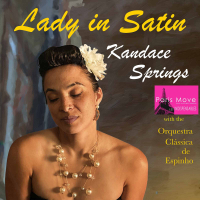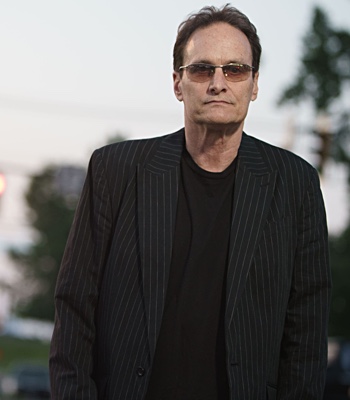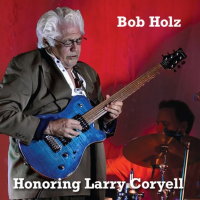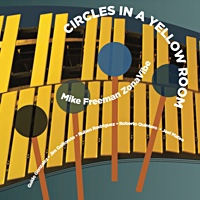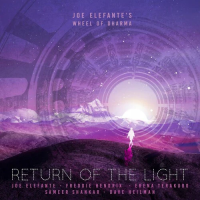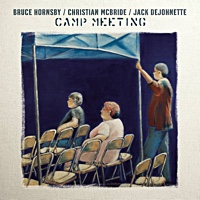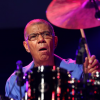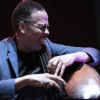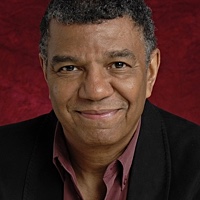Home » Search Center » Results: Cab Calloway
Results for "Cab Calloway"
That Dizzy Cat - Dizzy Gillespie (1945 - 1948)

by Russell Perry
Dizzy Gillespie grew up professionally playing in the big bands of Teddy Hill, Cab Calloway, Earl Hines and Billy Eckstine and writing for Woody Herman and Jimmy Dorsey. The wartime economy with its shortages and the musician's strike of the early 1940s led Gillespie to focus on small combos for his own projects, including his seminal ...
The Birth of Bebop (1939 - 1945)

by Russell Perry
"By the early 1940s... a new approach to small-combo jazz playing was developing, characterized by a more flexible approach to rhythm, a more aggressive pursuit of instrumental virtuosity, and an increasingly adventurous harmonic language."--Scott Deveaux Dizzy Gillespie, Charlie Parker, Thelonious Monk and Coleman Hawkins -the pioneers of Bebop. Playlist Host Intro 0:00 ...
Kenney Polson: For Lovers Only
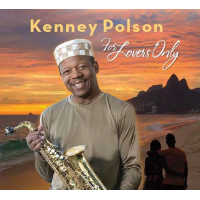
by Geannine Reid
Saxophonist Kenney Polson may not be a household name but he has a lengthy pedigree in jazz and smooth jazz. He was born in Kansas City, Missouri to a musical family; a grandfather worked with Count Basie and Cab Calloway and an uncle sang with the Coasters. Polson's discography since 2010 includes Serendipity (2014, No Slop ...
The Entertainers – Louis Armstrong, Cab Calloway and Lionel Hampton (1929 - 1940)

by Russell Perry
Jazz has often been looked at through the lens of the conflict between art and commerce. In the 1930s, several artists successfully blurred these distinctions. Louis Armstrong adopted popular song as his vehicle for a successful career shift into the mainstream. Cab Calloway defined his popular hipster persona while fronting one of the most professional big ...
Women in Jazz, Part 1: Early Innovators

by Karl Ackermann
"Lil Hardin [Armstrong]...often imagined herself standing...at the bottom of a ladder, holding it steady for Louis as he rose to stardom." (Stanford Archive of Recorded Sound, 2012). “The all-female band is an anomaly in music, one that must constantly prove itself as a 'band,' and not just 'girls playing music together.'" (Mary Ann Clawson, 1999). Everything ...
For Today, Tomorrow and Always - A 2018 Retrospective

by Mary Foster Conklin
The final broadcast of the year remembered some of the great artists that left us in 2018, with birthday shout outs to Una Mae Carlisle, Cab Calloway, Rebecca Parris, Nancy LaMott and Annie Lennox, among others, plus a nod to more Grammy nominees. Happy New Year! Playlist Janice Friedman “Get Set" from Live at ...
Thanksgiving Birthdays and Holiday Jazz

by Mary Foster Conklin
An assortment of Thanksgiving-inspired jazz to whet your appetite and get your gratitude on, with birthday shout outs to Mose Allison, Rickie Lee Jones, Johnny Mercer and Sheila Jordan, plus a preview of who's performing in NYC for the holidays. Playlist Jen Hodge “The Swamp Bucket Challenge" from All's Fair in Love and Jazz ...
Seven Women (Plus Three) 2018 – Part X

by C. Michael Bailey
Lucia Jackson You and the Night and the Music Roni Music 2018 To a precious few, much talent is given, particularly the young of age, like New York City —native Lucia Jackson, who, at the age of 26 has already distinguished herself as an accomplished dancer and model. Now Jackson emerges ...
Big in Japan: A History of Jazz in the Land of the Rising Sun, Part 1

by Karl Ackermann
Part 1 | Part 2The music market in Japan--second only to the U.S. in terms of revenue--generates more than two-billion dollars in sales annually. Enthusiasts and collectors of jazz recordings had long ago discovered that Japan's robust music scene, and the now virtual accessibility to products have made the country a go-to resource for ...
Blue Highways and Sweet Music: The Territory Bands, Part II

by Karl Ackermann
Part 1 | Part 2 Part 1 of Blue Highways and Sweet Music: The Territory Bands looked at the roots, drivers and challenges of the travelling groups who brought jazz music to the non-urban areas of the Southern Plains, through one-night-stands, in often impromptu venues. A black phenomenon, often misappropriated by white musicians, promoters, ...


